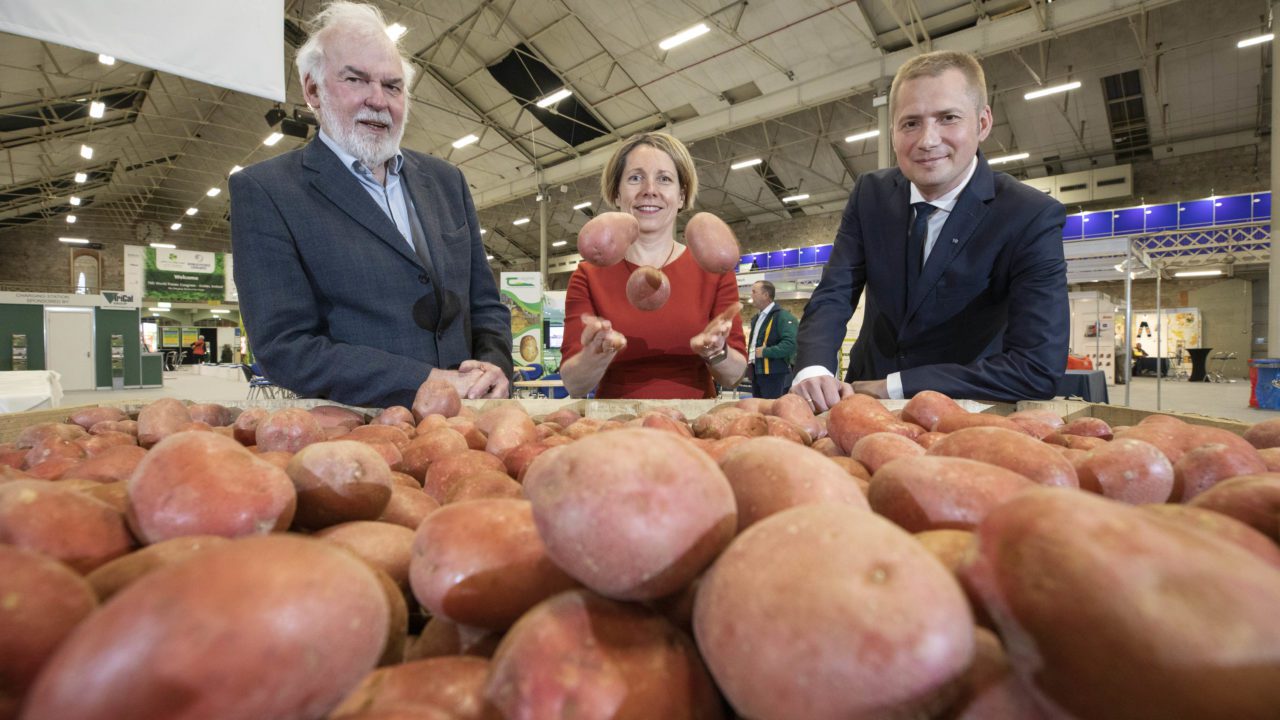The World Potato Congress (WPC) has launched a new project aiming to increase the crop’s role in advancing global sustainable development.
During the closing session of the 11th WPC in Dublin, WPC Inc. president Romain Cools unveiled the ‘Declaration of Dublin’.
It calls on the global potato value chain to invest in ‘potato solutions’ to advance the United Nations (UN) 2030 Agenda for Sustainable Development.
That strategy includes 17 sustainable development goals (SDG) representing a universal call-to-action to end poverty, protect the planet and improve the lives and prospects of everyone.
The ‘Declaration of Dublin’ includes four pillars to drive the project:
- Enhance the profile and benefits of the potato;
- Establish new partnerships in research and the potato value chain;
- Champion best practice to guide new local potato projects;
- Launching initiatives through the WPC global network of organisations, companies and partners.
WPC has also announced the first two members of a network of ‘potato ambassadors’ who will be tasked with advancing the goals of the project.
The first WPC ambassador is the Ireland’s Special Envoy for Food Systems, Tom Arnold who grew up on a potato farm near Dublin.
In addition to his role as Special Envoy, Arnold is a member of the UN Food System Summit’s Champions Group; the Global Panel on Agriculture and Food Systems for Nutrition (GloPan); and the Board of Global Alliance for Improved Nutrition (GAIN).
He formally chaired Ireland’s 2030 Agri-Food Strategy Committee.
His primary degree is in agricultural economics from University College Dublin (UCD) and he has Master’s degrees from the Catholic University of Leuven and Trinity College, Dublin (TCD).
The WPC also announced that professional Latvian cyclist Toms Skujuns will become a ‘potato ambassador’.
Toms, who is known for his love of the potato, is the current road race and time trial champion in Latvia and finished second on the eighth stage of the 2020 Tour de France.

The WPC heard that the world’s population is set to grow by 9.7 billion by 2050 which will require 70% more food, produced in a more sustainable way.
Delegates were told that climate change poses an extra challenge when in comes to increasing productivity and reducing rural poverty.
WPC president Romain Cools reiterated that local food production in general, and more specifically potatoes, must be intensified to assure food security and reduce dependency from international trade.
